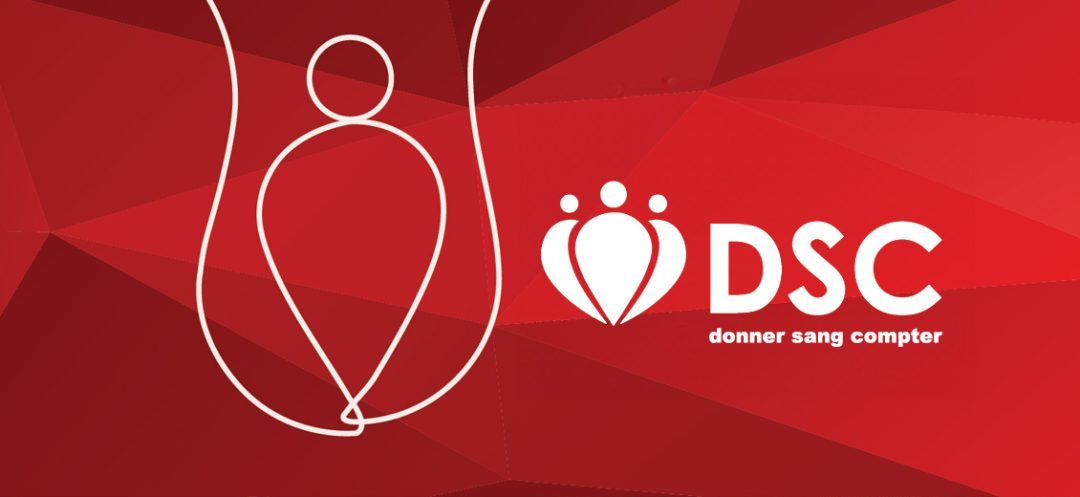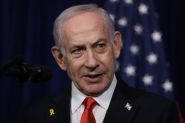
On World Blood Donor Day, a crucial question arises: After 14 years of tireless efforts to promote voluntary blood donation in Lebanon, Donner Sang Compter has closed its doors. This decision carries significant implications in a country already burdened by a fragile healthcare system.
Yorgui Teyrouz, speaking on behalf of the Donner Sang Compter (DSC) team, announced the association's closure through an open letter on Facebook on June 13, 2024, also marking its 14th anniversary. A heartbreaking moment for this “humble, small organization” that has wholeheartedly dedicated itself, since its inception, to “sparking a movement and engaging the largest number of people through national awareness-raising campaigns on the importance of voluntary blood donation.”
Over a 14-year period, the accomplishments were extraordinary: “160,000 calls for help from patient families,” “over one million outgoing calls,” “60,000 successful blood and platelet donations in 142 hospitals” thanks to donors' generosity, “1,312 mobile blood drives” collecting “44,332 units of blood,” and “over 5,000 conferences, interviews, sessions, and interventions” for raising awareness. In total, “105,000 units of voluntary blood from call centers and blood drives combined” have been donated through DSC in 15 years.
A success made possible by the generosity of blood donors who anonymously gave their time and blood for saving people in need. “Over 5,000 trained volunteers who dedicated themselves to the cause without ever complaining,” “hospitals that acknowledged and supported our efforts,” and “call center operators, primarily students deserving special recognition for their devotion,” Teyrouz said.
Despite these impressive achievements, DSC finds itself at an impasse. It faces “challenges” and a “lack of proper collaboration and coordination among stakeholders,” posing significant obstacles to the group’s work, and causing frustration for patients, their families, and blood donors.”
Legitimate questions are being raised: Are blood banks maximizing efforts to maintain high stocks? Are the standardized eligibility criterias established by the government in 2015 consistently applied? Are blood banks ensuring the best experience for donors? Why haven't public campaigns to promote blood donation been organized despite allocated funds?
So many unanswered questions. “The lack of funds over the past year and a half,” have compelled DSC to shut down.
This departure raises serious concerns about the future of blood donation in Lebanon, already weakened by an unprecedented economic crisis and an overstretched healthcare system. Without DSC's advocacy work, a significant decline in voluntary donations, jeopardizing hospital blood supplies, is feared. Blood banks are now at risk of shortages, potentially leading to dramatic consequences for patients.
The DSC’s closure poses multiple questions: How can blood shortage be prevented? What are the solutions to be set for the best coordination and harmonization? Beyond the lack of funding, what structural obstacles hinder the collection system? What responsibilities do different stakeholders bear? How can blood donation associations ensure their sustainability in this challenging economic context? What innovative financing models could be considered?
So many questions require thorough exploration to provide concrete and sustainable solutions to the challenges caused by this closure. The lives of thousands of Lebanese patients who rely on daily blood donations are at stake. It is an immense yet crucial challenge which concerns us all. As Yorgui Teyrouz rightly recalls, Donner Sang Compter has been “a life philosophy” that we must endeavor to preserve.
Yorgui Teyrouz, speaking on behalf of the Donner Sang Compter (DSC) team, announced the association's closure through an open letter on Facebook on June 13, 2024, also marking its 14th anniversary. A heartbreaking moment for this “humble, small organization” that has wholeheartedly dedicated itself, since its inception, to “sparking a movement and engaging the largest number of people through national awareness-raising campaigns on the importance of voluntary blood donation.”
Over a 14-year period, the accomplishments were extraordinary: “160,000 calls for help from patient families,” “over one million outgoing calls,” “60,000 successful blood and platelet donations in 142 hospitals” thanks to donors' generosity, “1,312 mobile blood drives” collecting “44,332 units of blood,” and “over 5,000 conferences, interviews, sessions, and interventions” for raising awareness. In total, “105,000 units of voluntary blood from call centers and blood drives combined” have been donated through DSC in 15 years.
A success made possible by the generosity of blood donors who anonymously gave their time and blood for saving people in need. “Over 5,000 trained volunteers who dedicated themselves to the cause without ever complaining,” “hospitals that acknowledged and supported our efforts,” and “call center operators, primarily students deserving special recognition for their devotion,” Teyrouz said.
Despite these impressive achievements, DSC finds itself at an impasse. It faces “challenges” and a “lack of proper collaboration and coordination among stakeholders,” posing significant obstacles to the group’s work, and causing frustration for patients, their families, and blood donors.”
Legitimate questions are being raised: Are blood banks maximizing efforts to maintain high stocks? Are the standardized eligibility criterias established by the government in 2015 consistently applied? Are blood banks ensuring the best experience for donors? Why haven't public campaigns to promote blood donation been organized despite allocated funds?
So many unanswered questions. “The lack of funds over the past year and a half,” have compelled DSC to shut down.
This departure raises serious concerns about the future of blood donation in Lebanon, already weakened by an unprecedented economic crisis and an overstretched healthcare system. Without DSC's advocacy work, a significant decline in voluntary donations, jeopardizing hospital blood supplies, is feared. Blood banks are now at risk of shortages, potentially leading to dramatic consequences for patients.
The DSC’s closure poses multiple questions: How can blood shortage be prevented? What are the solutions to be set for the best coordination and harmonization? Beyond the lack of funding, what structural obstacles hinder the collection system? What responsibilities do different stakeholders bear? How can blood donation associations ensure their sustainability in this challenging economic context? What innovative financing models could be considered?
So many questions require thorough exploration to provide concrete and sustainable solutions to the challenges caused by this closure. The lives of thousands of Lebanese patients who rely on daily blood donations are at stake. It is an immense yet crucial challenge which concerns us all. As Yorgui Teyrouz rightly recalls, Donner Sang Compter has been “a life philosophy” that we must endeavor to preserve.
Read more




Comments